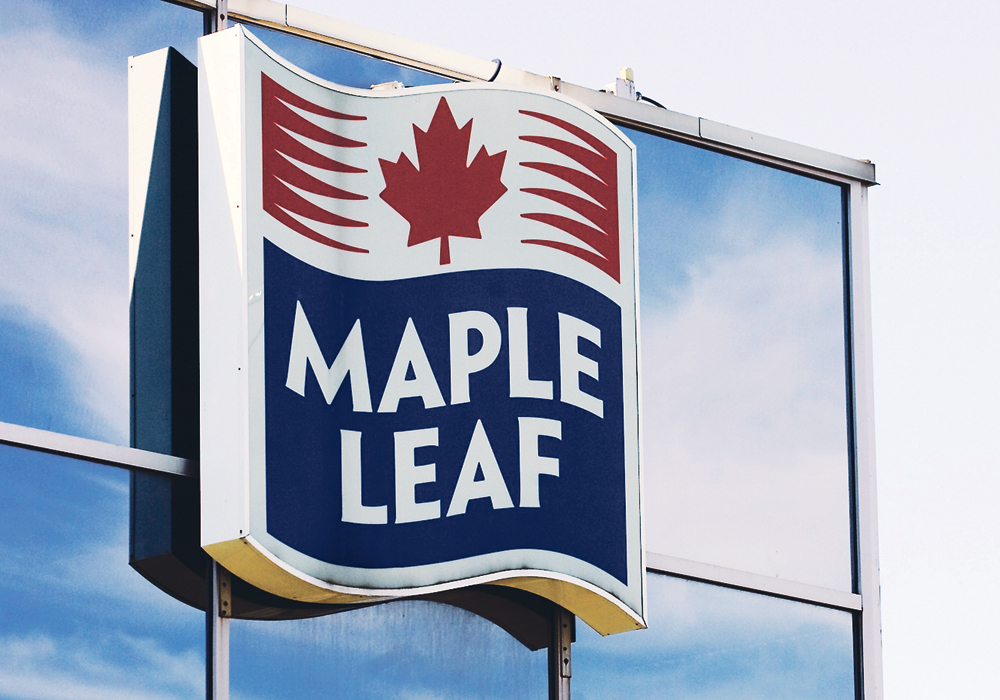Maple Leaf Foods, the largest pork processor in the country, has opted to build its new meatless plant south of the border.
The iconic Canadian food company recently announced plans to spend US$310 million on building a 230,000 sq. foot processing plant in Indiana where its Lightlife Burger will be made, along with other products. It will become the largest facility of its kind in North America.
The company is capitalizing on the expanding plant-based market and is hedging against several disruptive factors. The fact that the new plant will be built in the U.S. comes as a huge disappointment nonetheless.
Read Also

High prices see cow-calf producers rushing to incorporate
Farm accountants are reporting a steady stream of cow-calf producers rushing to get their operations incorporated ahead of selling their calves this fall.
Maple Leaf has many reasons to look beyond meat products to build its business. For one, biosecurity issues lurk all over the world, starting with the African swine flu, which is wreaking havoc in Asia. Canada is one case away from seeing its pork imports banned from many countries around the world.
Secondly, the rise of flexitarianism, in which consumers eat more plant-based foods along with meat, is real and companies like Maple Leaf have invested in vegetable proteins. To focus more on plant-based dieting, Maple Leaf has acquired two U.S.-based companies. Building a new facility is a natural extension of an ongoing strategy that will help Maple Leaf pivot between major protein sources. Such a rationale certainly has merit.
But Maple Leaf is building its plant in the U.S., despite the fact that peas will be the plant’s main ingredient and Canada is one of the world’s largest pea producers. This speaks to how anemic Canada’s food-processing industry has become.
Canada is desperate for measures that will enhance its competitiveness yet it has many federally licensed facilities in need of serious capital investments.
It has also been mentioned that Canada is having difficulty attracting foreign investors due to less-than-predictable new business policies. It needs policies that provide a stable, sustainable focus on economic growth and talent management.
On these fronts, the U.S. has outwitted Canada for a few years now. According to a report by Food and Consumer Products of Canada (FCPC), a group representing food manufacturers, 83 percent of new, branded products launched in Canada were neither developed nor manufactured in Canada. This lack of innovation is rooted in our inability to think creatively and generate intellectual property.
According to the same survey, the number of full-time employees has declined by 7.3 percent over the last five years due to labour relocation and outsourcing of certain operations outside of Canada. During this period, there have been 22,000 jobs lost within the sector, and all these positions are in food manufacturing. Essentially, the sector has lost 12 jobs a day, every single day, for five years.
So, Maple Leaf is building a plant in Indiana simply because it makes business sense. Or, to put it more bluntly, the company had little choice.
In the last decade, the U.S. has seen almost 4,000 new food processing plants, whereas Canada has seen a mere 20.
Something is clearly wrong. We have an abundance of ingredients and are on the leading edge of artificial intelligence that can make our manufacturing more efficient and productive, but it doesn’t compensate for our unskilled labour force, capital access deficiencies and poor infrastructure conditions.
The federal government’s agri-food export targets of $85 billion by 2025 can only be reached by making our food-processing sector more competitive. Canada needed the nearly 500 jobs created by the construction of this new Maple Leaf facility, but it was decided otherwise and Maple Leaf itself is hardly to blame.
Sylvain Charlebois is senior Director of Dalhousie University’s Agri-Food Analytics Lab and a professor in food distribution and policy.















